Category: Policies & Practices
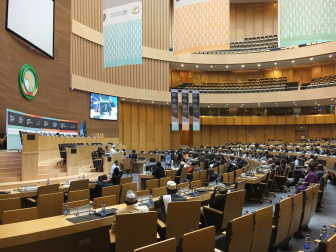
A Focus on Strong Health Systems and Data Use at MCIA
Mar 10, 2016
At the inaugural Ministerial Conference on Immunization in Africa (MCIA), there weren’t questions around the BID Initiative’s success to date, but how soon could we scale across our two demonstration countries to strengthen health systems and create a data-use culture.
Read More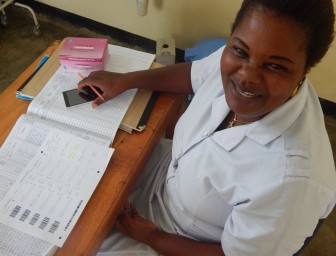
Matrona Reaches More Children with Tanzania’s Immunization Registry
Mar 2, 2016
On a recent visit to Terrat Dispensary in Arusha City Council district, I sat down with nurse Matrona Silayo to discuss her role and how the new electronic immunization registry is positively impacting her work. At the facility, Matrona’s role largely involves work in the Reproductive Child Health clinic to manage stock, administer vaccines, create reports, and educate mothers on general child health and immunization.
Read More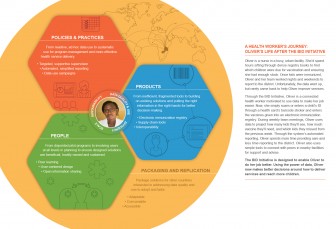
How do we improve health around the world?
Feb 24, 2016
Improving poor data quality and use is a complicated problem to solve. There isn’t a single, one size fits all solution that can truly address this challenge in a scalable, sustainable way. At the BID Initiative, we believe that the collection of multiple interventions is key to helping address data quality and use challenges. We need a holistic investment in data management policies and practices, information system products, and the people who will use them.
Read More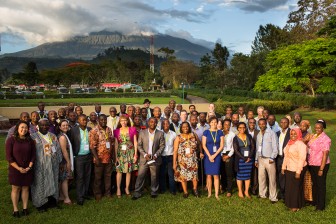
Celebrating Progress, Looking Forward: the BLN Discussion Meeting
Feb 11, 2016
International development is a collaborative effort, and the BLN Discussion Meeting showed collaboration at work. Held in Arusha, Tanzania from December 7 to 10, the BLN Meeting was a chance for over 60 representatives from fifteen countries and various partner organizations to discuss the challenges and successes of developing and implementing eHealth strategies and data use interventions.
Read More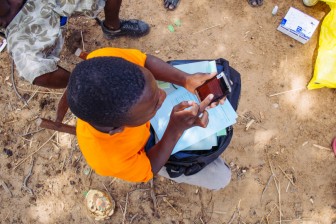
Change takes time, but not too much
Feb 9, 2016
I have always liked this quote by Bill Gates, as it reflects both my own experience in global health as well as the changing digital health landscape. A little over eight years ago, I started at PATH. Year one was quite a shock after working for 18 years in software and international trade. The business model, the acronyms—all were new to me and I knew next to nothing about global health. But I had amazing colleagues who took the time to educate me, listening to and answering my constant questions. While we came from different backgrounds, we shared a desire to change the world.
Read More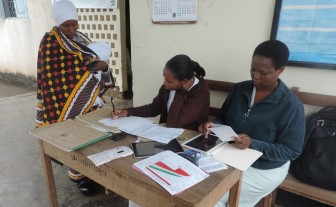
Data sharing that works
Jan 28, 2016
Collecting and using data is great in theory. Data can help measure progress, streamline processes, empower decision-makers, and create a better experience overall for those receiving services. In practice though, sharing data to support these positive outcomes can be a bit messy. As people invest in and develop ownership in a data system, an agreed upon set of practices and governance rules is needed to facilitate sharing between systems.
Read More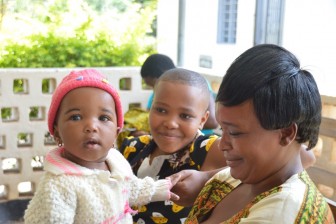
Reflections from the field: Better data, better health.
Jan 12, 2016
Last month I was in Arusha to participate in the BID Learning Network discussion meeting and visit facilities where the BID Initiative is working to enhance immunization and overall health service delivery through improved data collection, quality, and use.
Read MoreThe Role of Paper to Digital Data Solutions
Jan 6, 2016
In response to this article by Dr. Mahad Ibrahim on the role of data during the Ebola outbreak, some interesting questions were sparked among our team. The piece evoked a lot of great insights about the opportunities and challenges the piece addresses, as well as how we see those topics evidenced in our VillageReach work.
Read More
Unique Identifiers for Routine Immunizations
Dec 16, 2015
A baby is born. Immediately, that baby’s identity is linked to his or her mother. When the baby goes to the health facility for the first of its vaccinations, the mother’s name and identification papers are critical. Almost every service the baby receives at the health center is connected to the mother because he or she did not receive an official, unique form of identification when born.
Read More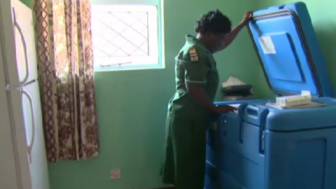
Cold Chain Policy vs. Cold Hard Reality: Thinking Inside the Box
Nov 10, 2015
Recently, I was sitting with the Expanded Programme on Immunization (EPI) Manager, his senior staff, and technical assistance (TA) partners in an African country, discussing support for better visibility and analysis of immunization supply chain data. The EPI Manager was willing to listen, but wasn’t sure his team needed help in data analysis. As for visibility, that was already being addressed.
Read More